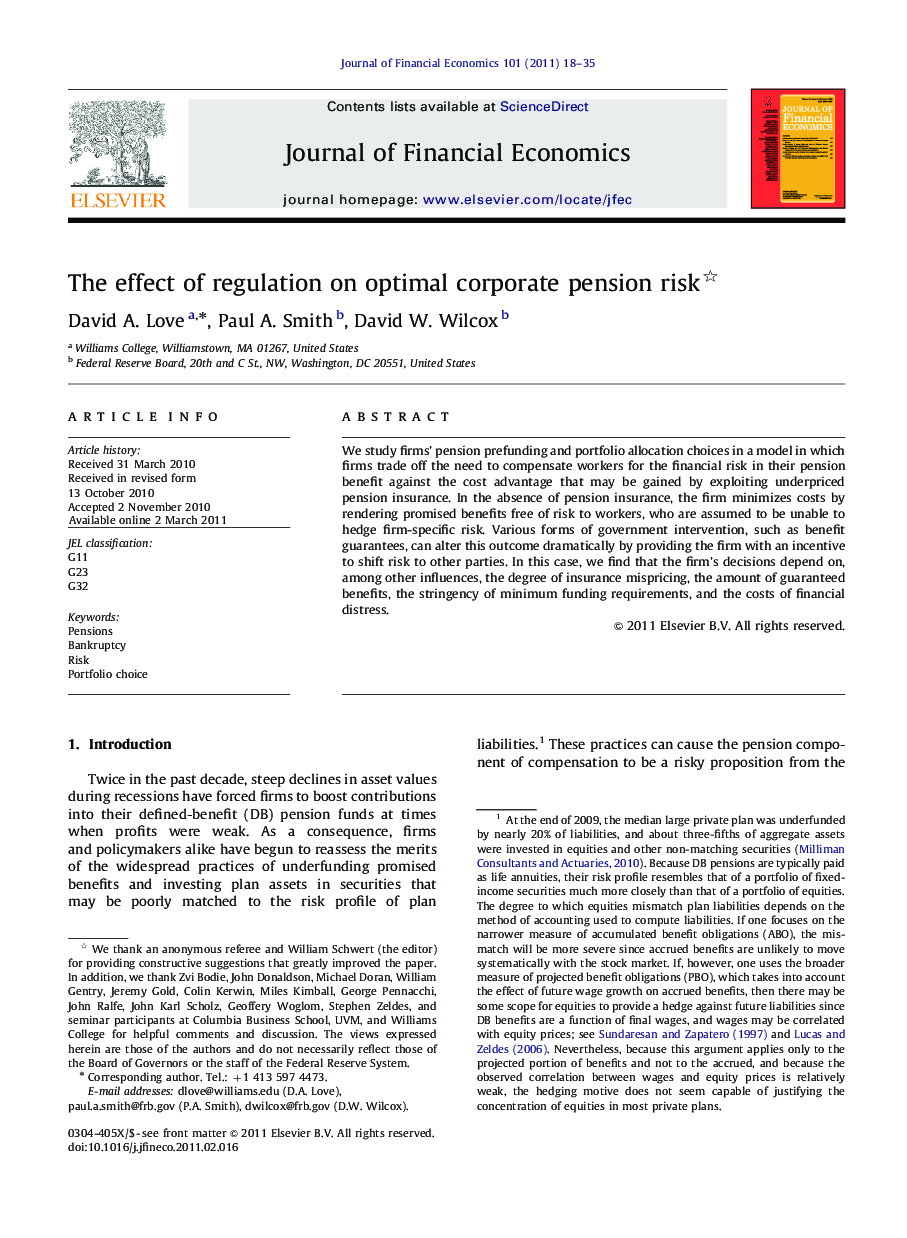| Article ID | Journal | Published Year | Pages | File Type |
|---|---|---|---|---|
| 959651 | Journal of Financial Economics | 2011 | 18 Pages |
We study firms' pension prefunding and portfolio allocation choices in a model in which firms trade off the need to compensate workers for the financial risk in their pension benefit against the cost advantage that may be gained by exploiting underpriced pension insurance. In the absence of pension insurance, the firm minimizes costs by rendering promised benefits free of risk to workers, who are assumed to be unable to hedge firm-specific risk. Various forms of government intervention, such as benefit guarantees, can alter this outcome dramatically by providing the firm with an incentive to shift risk to other parties. In this case, we find that the firm's decisions depend on, among other influences, the degree of insurance mispricing, the amount of guaranteed benefits, the stringency of minimum funding requirements, and the costs of financial distress.
